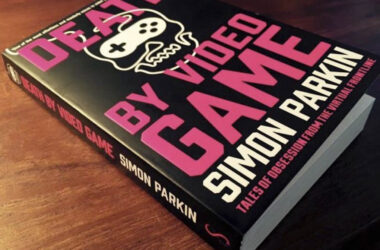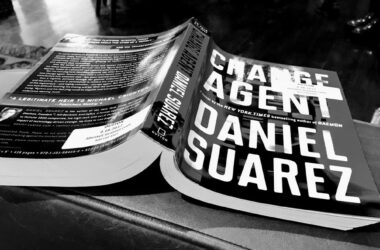Exhalation is the latest collection of short stories from science fiction writer Ted Chiang. As with his previous book, Stories of Your Life and Others, the set of stories is collected and curated across a fairly wide range of settings, characters, and themes; these are some of the best writing that the genre has to offer, as evidenced by the many awards they have received throughout the years.
The same praise I had for Stories of Your Life applies to Exhalation, which really just means that Ted Chiang stories exude a style that goes beyond science fiction tropes. There are plenty of stories about space exploration, alien civilizations, virtual and digital realities, robots, artificial intelligences and such, and most are presented in near-future or far-future settings. Chiang instead draws from much more breadth, everything from early 20th century to medieval Arabia, from the perspectives of animals to alternative universe mechanical beings. He also helpfully includes a few pages of commentary at the end of the book, to explain some of the thinking behind his choice of environment and how it ties back to the themes explored in their plots.
In aggregate, it’s a form of storytelling that doesn’t just try to entertain the reader, but is meant to raise questions and at times inject social and political commentary. The short story and novelette formats don’t allow for much exposition, so for him to still be able to set the scene and deliver depth in story and character—plus the actual fantastical science—so succinctly is remarkable. The book’s namesake, the short story Exhalation, is a prime example of using its setting to tell its story.
If there’s a missing aspect to Chiang’s stories, it’s that they’re usually light on events and end up focusing less on discrete actions. Not to say that it’s all just descriptions of static worlds; characters do evolve, and many of the longer novellas establish timelines of events to prod the story forward. They are often referenced passively or with a historical perspective, so in contrast to some other contemporary science fiction styles popular today there’s less of a in-the-moment feeling for readers. In effect, the pieces don’t easily adapt into other forms of popular entertainment, namely films and TV series1.
Of course, a counterargument can be made that the philosophical issues that Chiang’s stories present here are impossible to capture, with the same level of depth and nuance, in other mediums anyway. Having recently watched the Christopher Nolan classic Inception, maybe the best way to translate these stories is to use their central theses as a starting point to tell a story. Much like the idea of “dream within a dream” forms the basis of the eventual conflict behind that movie, any of Exhalation‘s short stories would be a fun space to explore as a science-fictional set of rules: for cinema, further prose, or just thought-provoking daydreams.



